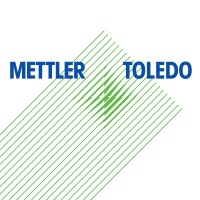
China Yangtze Power Co., Ltd.
China Yangtze Power is a electrical and electronic manufacturing company based out of BEIJING, BEJ, China.



China Yangtze Power is a electrical and electronic manufacturing company based out of BEIJING, BEJ, China.

At METTLER TOLEDO, our mission is to empower industries worldwide with precision instruments and services that drive progress toward a better and more #sustainable future. Our teams operate at the forefront of #innovation, delivering cutting-edge instruments to a diverse range of industries, from #LifeSciences and #pharmaceuticals to #manufacturing and #logistics. With a rich legacy spanning several decades, METTLER TOLEDO (NYSE: MTD) has a global presence in 40 countries, serves more than 140 countries, and employs 17,300 ambitious minds. Our valued global team contributes to our success in pushing the boundaries of what’s possible in the fields of biomedical sciences, food & beverage, retail, chemical analysis, industrial sectors, transport & logistics, and academia. Through our comprehensive portfolio of solutions and services, we enable businesses to achieve new levels of accuracy, efficiency, and quality. METTLER TOLEDO products cater to the unique needs of various applications, including laboratory weighing, liquid handling, industrial weighing, chemical analysis, and product inspection, while upholding our GreenMT commitment to sustainable practices. Be at the forefront of precision and excellence and follow us for more information about live events, hiring opportunities, industry latest trends, best practices, and more. Become a member of our global team at METTLER TOLEDO https://jobs.mt.com Benefit from informational videos on our YouTube channel: https://www.youtube.com/@mettlertoledo
Security & Compliance Standards Overview












No incidents recorded for China Yangtze Power Co., Ltd. in 2025.
No incidents recorded for Mettler-Toledo International, Inc in 2025.
China Yangtze Power Co., Ltd. cyber incidents detection timeline including parent company and subsidiaries
Mettler-Toledo International, Inc cyber incidents detection timeline including parent company and subsidiaries
Last 3 Security & Risk Events by Company
Angular is a development platform for building mobile and desktop web applications using TypeScript/JavaScript and other languages. Prior to versions 19.2.16, 20.3.14, and 21.0.1, there is a XSRF token leakage via protocol-relative URLs in angular HTTP clients. The vulnerability is a Credential Leak by App Logic that leads to the unauthorized disclosure of the Cross-Site Request Forgery (XSRF) token to an attacker-controlled domain. Angular's HttpClient has a built-in XSRF protection mechanism that works by checking if a request URL starts with a protocol (http:// or https://) to determine if it is cross-origin. If the URL starts with protocol-relative URL (//), it is incorrectly treated as a same-origin request, and the XSRF token is automatically added to the X-XSRF-TOKEN header. This issue has been patched in versions 19.2.16, 20.3.14, and 21.0.1. A workaround for this issue involves avoiding using protocol-relative URLs (URLs starting with //) in HttpClient requests. All backend communication URLs should be hardcoded as relative paths (starting with a single /) or fully qualified, trusted absolute URLs.
Forge (also called `node-forge`) is a native implementation of Transport Layer Security in JavaScript. An Uncontrolled Recursion vulnerability in node-forge versions 1.3.1 and below enables remote, unauthenticated attackers to craft deep ASN.1 structures that trigger unbounded recursive parsing. This leads to a Denial-of-Service (DoS) via stack exhaustion when parsing untrusted DER inputs. This issue has been patched in version 1.3.2.
Forge (also called `node-forge`) is a native implementation of Transport Layer Security in JavaScript. An Integer Overflow vulnerability in node-forge versions 1.3.1 and below enables remote, unauthenticated attackers to craft ASN.1 structures containing OIDs with oversized arcs. These arcs may be decoded as smaller, trusted OIDs due to 32-bit bitwise truncation, enabling the bypass of downstream OID-based security decisions. This issue has been patched in version 1.3.2.
Suricata is a network IDS, IPS and NSM engine developed by the OISF (Open Information Security Foundation) and the Suricata community. Prior to versions 7.0.13 and 8.0.2, working with large buffers in Lua scripts can lead to a stack overflow. Users of Lua rules and output scripts may be affected when working with large buffers. This includes a rule passing a large buffer to a Lua script. This issue has been patched in versions 7.0.13 and 8.0.2. A workaround for this issue involves disabling Lua rules and output scripts, or making sure limits, such as stream.depth.reassembly and HTTP response body limits (response-body-limit), are set to less than half the stack size.
Suricata is a network IDS, IPS and NSM engine developed by the OISF (Open Information Security Foundation) and the Suricata community. In versions from 8.0.0 to before 8.0.2, a NULL dereference can occur when the entropy keyword is used in conjunction with base64_data. This issue has been patched in version 8.0.2. A workaround involves disabling rules that use entropy in conjunction with base64_data.